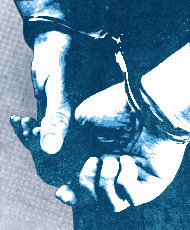Strong bi-partisan majority urges legislature to take action to address concerns, supports far-reaching reforms
The criminal justice system is broken and in urgent need of reform, according to a strong bi-partisan majority of Illinois voters from across the State. Moreover, the voters want the legislature to act immediately to take steps to reduce the number of people incarcerated, and are willing to support wide-ranging and dramatic reforms to address the problems in the system. These findings are contained in results of a poll, commissioned by the American Civil Liberties Union of Illinois, conducted just before the 2015 holidays. The findings released today suggest that voters across the state are anxious for leaders in Springfield to take action to fix these problems, believing that reform will improve safety in neighborhoods across Illinois.
“The message from this polling could not be clearer,” said Colleen Connell, executive director of the ACLU of Illinois in releasing the findings. “Voters knows the system is broken and they want the Governor and the legislature to be bold in adopting reforms that reduce our prison population significantly and improve services available in the community.”
“Perhaps most important, a majority of voters see this problem as important enough to consider a top or high priority – remarkable given the myriad of challenges facing the State.”
The poll finds that 74% of all voters across the state believe that the criminal justice system is “broken.” This includes 76% of registered Democrats, 74% of Independents and 70% of registered Republicans. A majority of voters also share this belief across the state, from the City of Chicago, to suburban Cook County, the Collar counties and in North and Southern Illinois. 60% of voters believe that the problems are serious enough to be addressed “immediately,” while only 5% of all voters say that the system “is working well.”
The polling data comes on the heels of the release of 14 recommendations by a Task Force appointed by Governor Bruce Rauner. The Governor pointed to these recommendations in his recent State of the State message, urging the legislature to move on these proposals.
The ACLU poll, however, demonstrates that voters are prepared to consider far-reaching reforms that would make a real, lasting impact on the number of persons incarcerated in Illinois. This is an urgent need. Illinois prison population has grown from around 6,000 in 1974 to 49,000 in 2015. More amazing, the facilities in Illinois are only designed to house 32,000, meaning that the prisons are operating at more than 150% capacity.
The ACLU poll found strong support (88%) across the state for diverting non-violent offenders to community service or treatment programs instead of prison. 78% of voters support changing sentences for possession of a small amount of drugs (any narcotics) from a felony to a misdemeanor. Nearly 3 in 4 voters (74%) would all inmates, even those convicted of violent offenses, to be eligible for reduced sentences if they complete treatment, education courses and otherwise are well-behaved. Two-thirds support reducing sentences for the possession of large amounts of drugs, reducing such sentences down to 4-15 years in prison. And, finally, 68% support sentencing flexibility for non-violent offenders, allowing probably (as an example) for someone convicted of burglary of an unoccupied home.
“What these numbers show is that the public is far ahead of the good, but cautious, proposals offered by the Governor’s Commission,” added Ben Ruddell, criminal justice policy attorney for the ACLU. “These five proposals would help make a real dent in the overcrowding in our prisons, and free up resources to treat people in the community.”
“In this environment of political stasis, the public is pleading with the legislature to be bold in fixing our broken system of justice – it is a message they should heed.”
Benenson Strategy Group conducted 8000 telephone interviews from December 11-16, 2015 on behalf of the American Civil Liberties Union of Illinois. All respondents were registered voters in Illinois who are likely to vote in the 2016 general election The margin of error for the data set is +3.39% at the 95% confident level and it is higher among subgroups.
Stay Informed
Sign up to be the first to hear about how to take action.
By completing this form, I agree to receive occasional emails per the terms of the ACLU’s privacy statement.
By completing this form, I agree to receive occasional emails per the terms of the ACLU’s privacy statement.

